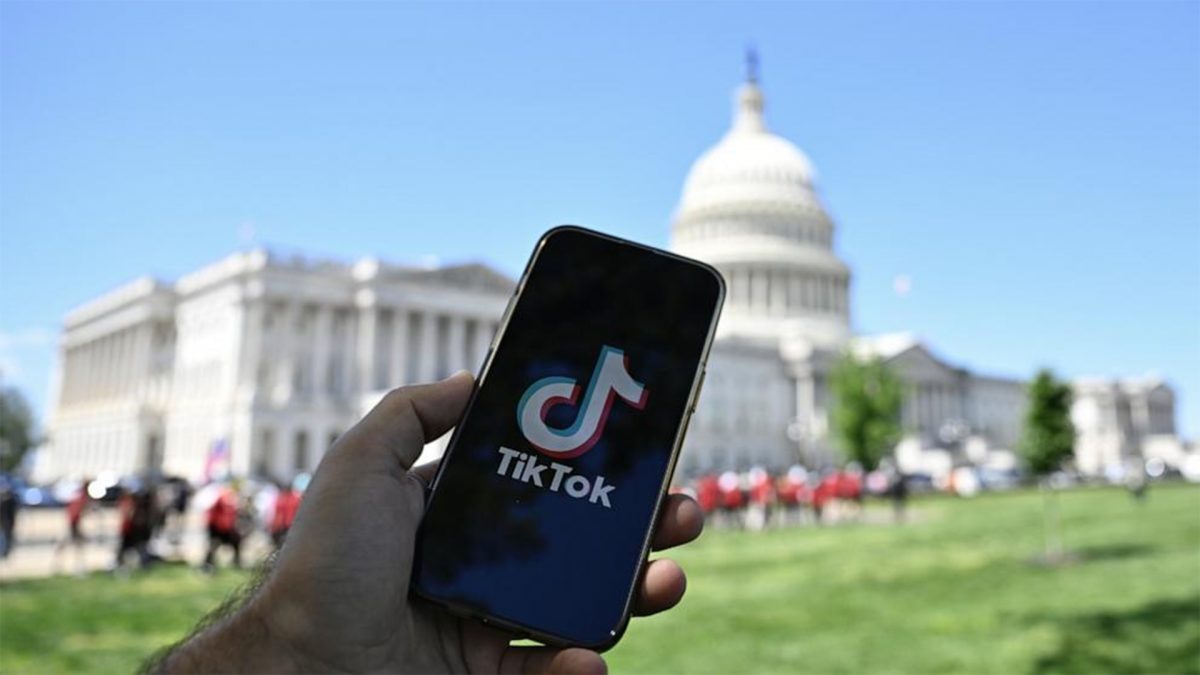In a court filing, ByteDance accused the American government of ‘unconstitutional singling out of TikTok’, revealing fresh details about failed negotiations over a potential ban of the platform in the US read more
)
ByteDance the parent of TikTok urged US appeals court to slash down the controversial law passed by the Biden administration. Source: AP
A new legal filing from Chinese tech firm ByteDance has challenged the US government’s decision to give an ultimatum to the video-sharing platform TikTok.
In the court filing, the tech giant accused the American government of “unconstitutional singling out of TikTok”, revealing fresh details about failed negotiations over a potential ban of the platform in the United States.
The controversial legislation in question was signed in April by US President Joe Biden and gave ByteDance the deadline of January 19 to either divest TikTok’s US assets or face a ban.
In response to this, the tech firm maintained that such divestiture is “not possible technologically, commercially, or legally” and accused the US government of refusing to engage in any serious settlement talks after 2022.
“Never before has Congress silenced so much speech in a single act,” the brief filed by TikTok said, The Guardian reported. The proposed legislation will prohibit app stores, such as those run by Google or Apple to offer TikTok if ByteDance refuses to sell its stake. The law will also bar internet hosting services from supporting the platform in the United States as well.
What Byte Dance is saying?
In the filing, lawyers of ByteDance recalled the lengthy negotiations between the company and the US government. They claimed that these negotiations “abruptly ended” in August 2022. Revealing the redacted version of a 100-plus page draft national security agreement, Byte Dance also stated that it has spent over $2 billion in efforts to protect the data of TikTok users.
The draft included giving the US government a “kill switch” to suspend TikTok in the country at the government’s sole discretion if the company did not comply with the agreement. ByteDance also mentioned that the US government demanded that TikTok’s source code be moved out of China.
While TikTok was willing to partner with Oracle to move the source code, they wanted to maintain discretion about it, which did not sit well with the Biden administration.
TikTok says the ban is inevitable without the court blocking it
ByteDance continues to urge the court to intervene and strike down the law otherwise a ban on the social media platform in the United States is inevitable.
“This law is a radical departure from this country’s tradition of championing an open Internet and sets a dangerous precedent allowing the political branches to target a disfavored speech platform and force it to sell or be shut down,” ByteDance and TikTok argue in asking the court to strike down the law.
Meanwhile, lawyers for a group of TikTok users who have joined the suit to prevent the app from being banned argued that the law would violate free speech rights.
They argued that there are no imminent national security risks in the United States because the law “allows TikTok to continue operating through the rest of this year – including during an election that the very president who signed the bill says is existential for our democracy.”
The US Department of Justice has yet to comment on the court filing. Interestingly, in 2020, then-US President Donald Trump was blocked by the courts in his bid to ban TikTok and Chinese-owned WeChat, a unit of Tencent, in the United States. Earlier this month, Trump joined Tiktok and even raised concerns about the potential ban.
The US Court of Appeals for the District of Columbia will now hold oral arguments on a lawsuit filed by TikTok and ByteDance. TikTok’s future in the US may rest on the outcome of the case.
With inputs from agencies.

 2 months ago
16
2 months ago
16
)
)
)
)
)
)
)
)
)
)
)
)
)
)
)
)
)
)
)
)
)
)
)
)
 English (US) ·
English (US) ·